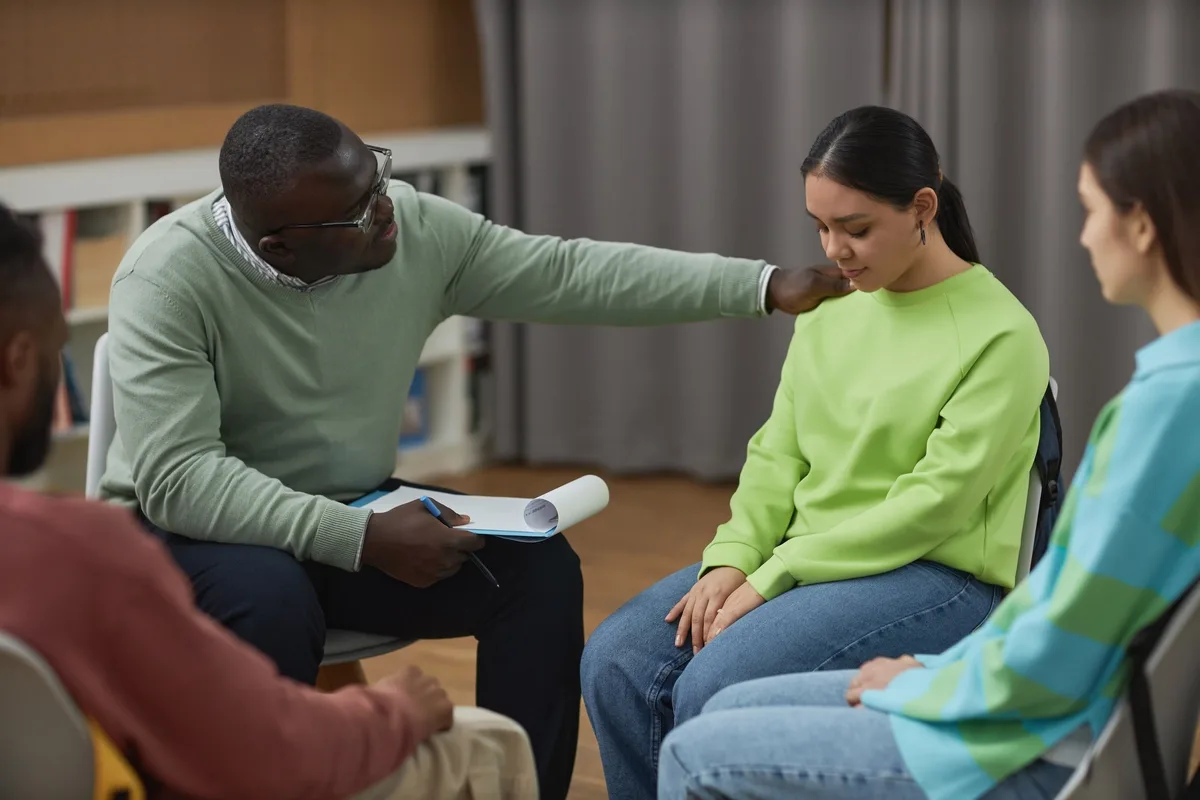24/7 Helpline:
(866) 899-221924/7 Helpline:
(866) 899-2219
Learn more about Group Therapy centers in Magee

Other Insurance Options

EmblemHealth

Kaiser Permanente

Magellan Health

UMR

BHS | Behavioral Health Systems

AllWell

Sliding scale payment assistance

Ambetter

State Farm

Excellus

Self-pay options

Cigna

BlueCross

Multiplan

Premera

Oxford

Choice Care Network

Group Health Incorporated

GEHA

Amerigroup

Millcreek of Magee Treatment Center
Millcreek is dedicated to help those children and teens who are dealing with behavioral and mental h...



Region 8 A & D Residential
Region 8 A & D Residential is a private rehab located in Mendenhall, MS. Region 8 A & D Residential ...

Region 8 Mental Health Services
Region 8 Mental Health Services is a private rehab located in Mendenhall, Mississippi. Region 8 Ment...









































































